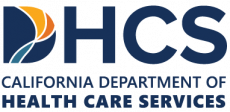Burnout is a state of emotional, physical, and mental exhaustion caused by prolonged stress and overwork. Unlike temporary feelings of being fatigued and overwhelmed, burnout is a chronic condition that can have significant implications for your health, career, and quality of life.
Physicians who must make lifesaving decisions daily are particularly susceptible to this condition due to the high-pressure environment of the medical field. Let’s investigate why physicians are so susceptible to burnout, what causes it, and the warning signs, including relying on drugs or alcohol to cope.
Why Physicians Are Vulnerable to Burnout
The medical profession is inherently high-stress. Doctors face intense pressure to perform flawlessly, often working long hours without a break. The emotional toll of witnessing human suffering and death can be devastating. Additionally, the administrative burden and industry bureaucracy further compound stress levels, leaving you little time for your personal life.
The following factors can lead to burnout.
- Emotional exhaustion: The constant demand to manage complex patient issues without adequate resources can lead to feelings of being overextended.
- Depersonalization: Over time, intense stress can lead to a cynical and detached attitude toward patients, treating them as objects rather than people.
- Lack of achievement: You may feel your work is not making a difference, leading to decreased satisfaction and a sense of failure or lack of accomplishment.
- Work-life imbalance: Challenging schedules and emergency calls can cut into your downtime, damage your relationships, and leave you unable to focus on self-care activities.
Warning Signs of Physician Burnout
Burnout can manifest in various ways, but here are some common warning signs.
- Chronic fatigue: Feeling physically and emotionally drained, even after rest.
- Increased irritability: Shorter tempers with colleagues or family, often over minor issues.
- Detachment: A sense of numbness or alienation from work and personal life.
- Lack of satisfaction: A persistent feeling of disillusionment and dissatisfaction with your achievements.
- Physical symptoms: Headaches, sleep disturbances, and gastrointestinal disturbances are common physical manifestations of burnout.
- Substance use: Using drugs or alcohol to manage stress, detach from work-related pressures, or unwind can be a significant warning sign of burnout.
Addressing Burnout at the Healing Place for Healers
Recognizing the signs of burnout is the first step in addressing this pervasive issue. Physicians must seek help through professional counseling, peer support groups, or specialized programs like those offered at The Practice. Creating a balanced schedule, setting realistic goals, and prioritizing self-care are crucial strategies in preventing and managing burnout.
At The Practice, we understand the unique pressures physicians face, and we offer a sanctuary where doctors can address their burnout and related substance use in a confidential, supportive environment. We provide individualized and comprehensive psychiatric evaluations for burnout and other concerns that are more prevalent among health professionals. With a focus on holistic recovery, we help physicians rediscover their passion for medicine and find a healthier balance between their professional and personal lives.
Physician burnout is a severe issue that requires a proactive approach. By understanding the causes and recognizing the signs, you can take the necessary steps to protect your well-being and continue to provide the high level of care your patients expect and deserve. We’re here for you when you are ready to prioritize your health.


